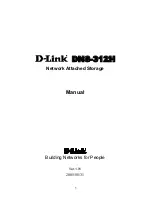FC-14 and SA-14 Storage Subsystems
System Administration Manual
105
Performing a Media Scan on a System Drive
Media Scan is intended to provide an early indication of an impending System Drive failure and
to reduce the possibility of encountering a media error during host operations. A typical file
system is a mixture of frequently used files, rarely used files, and free space. If a disk develops
bad spots in sectors that are not often accessed, this failure could remain undetected. To
prevent a disk failure during a rebuild, which could lead to data loss, it is necessary to detect
Item/Field
Description
Identification
•
Name of the RAID Rack. Enter a new RAID Rack name which is
used to identify the RAID Rack.
•
WWN: Worldwide name for the RAID Rack.
•
Media Scan Period: The number of days over which a complete
scan of the system drives will occur.
•
Cache Block Size: 4 KB or 16 KB. By default, the cache block size
is 16 KB. Setting the cache block size to 4 KB may result in
reduced performance with file systems configured with 32 KB
block size.
Click the OK button to apply any changes to the RAID Rack Identification.
Controllers
The information for each RAID Controller:
•
Status: The Status of the RAID Controller.
•
Mode: The mode will report the RAID controller as running in
either Active or Passive mode. By default, both controllers will
be Active.
•
Firmware: The firmware version installed on the RAID
Controllers.
Batteries
The information for each battery within the RAID Rack:
•
Status: The status of the batteries. Green – OK, Amber –
Warning, Red – Severe.
•
Location: The location of the batteries within the RAID Rack.
•
Age: The number of days which the batteries have been in the
RAID Rack.
•
Life Remaining: The number of days until the batteries should
be replaced.
Power Supplies
The status of the Power Supply Units (PSU) within the RAID Rack.
Temperature
Sensors
The temperature (Temperature Sensor) within the RAID Rack.
Fans
The Status of the Fans within the RAID Rack.
Physical Disks
The summary of the Physical Disks within the RAID Rack.


















